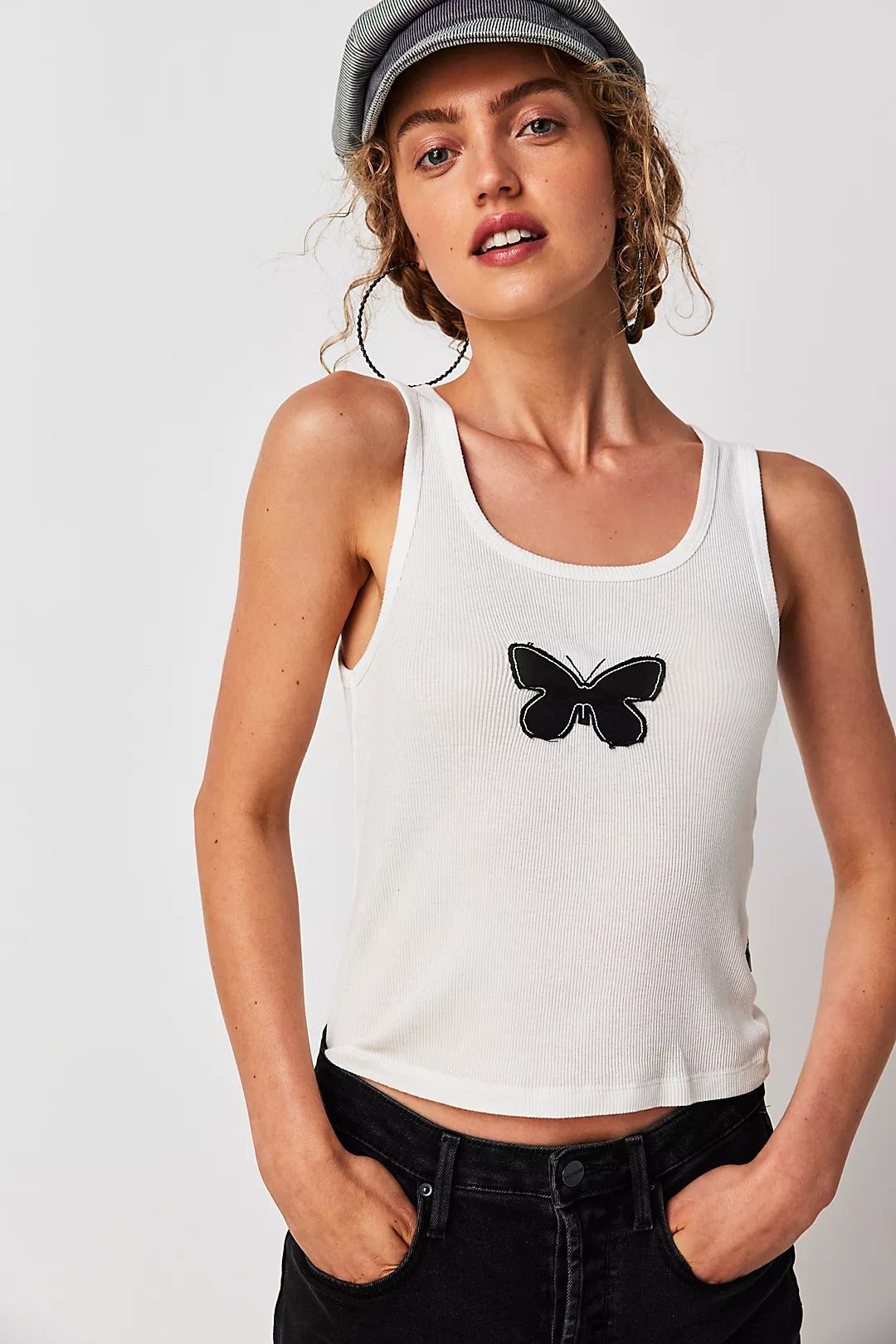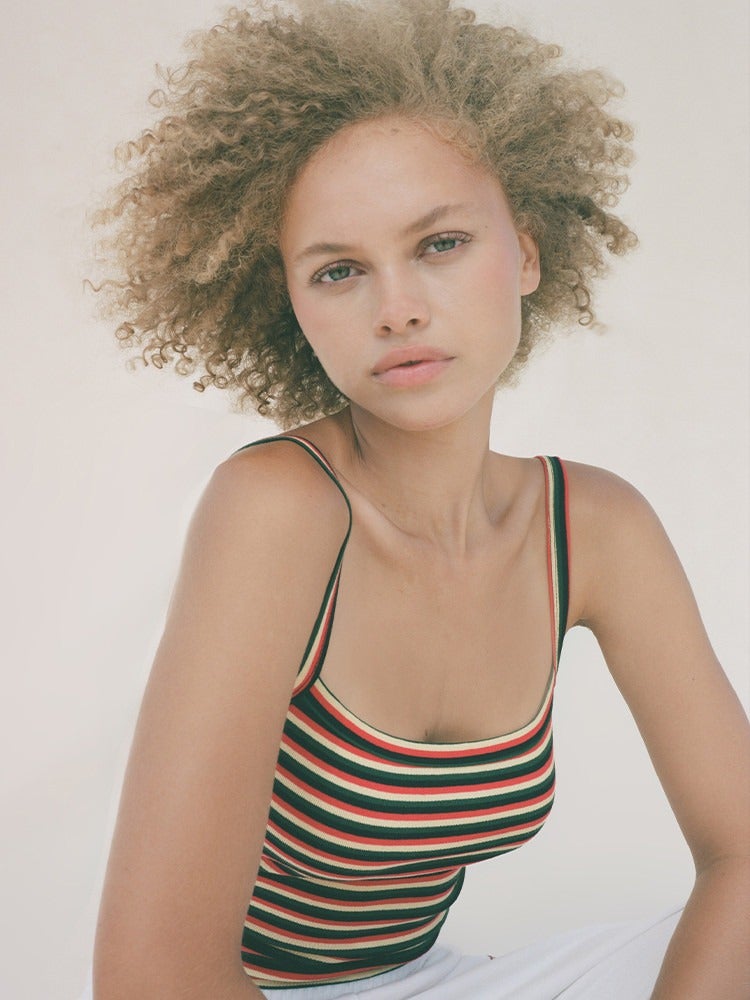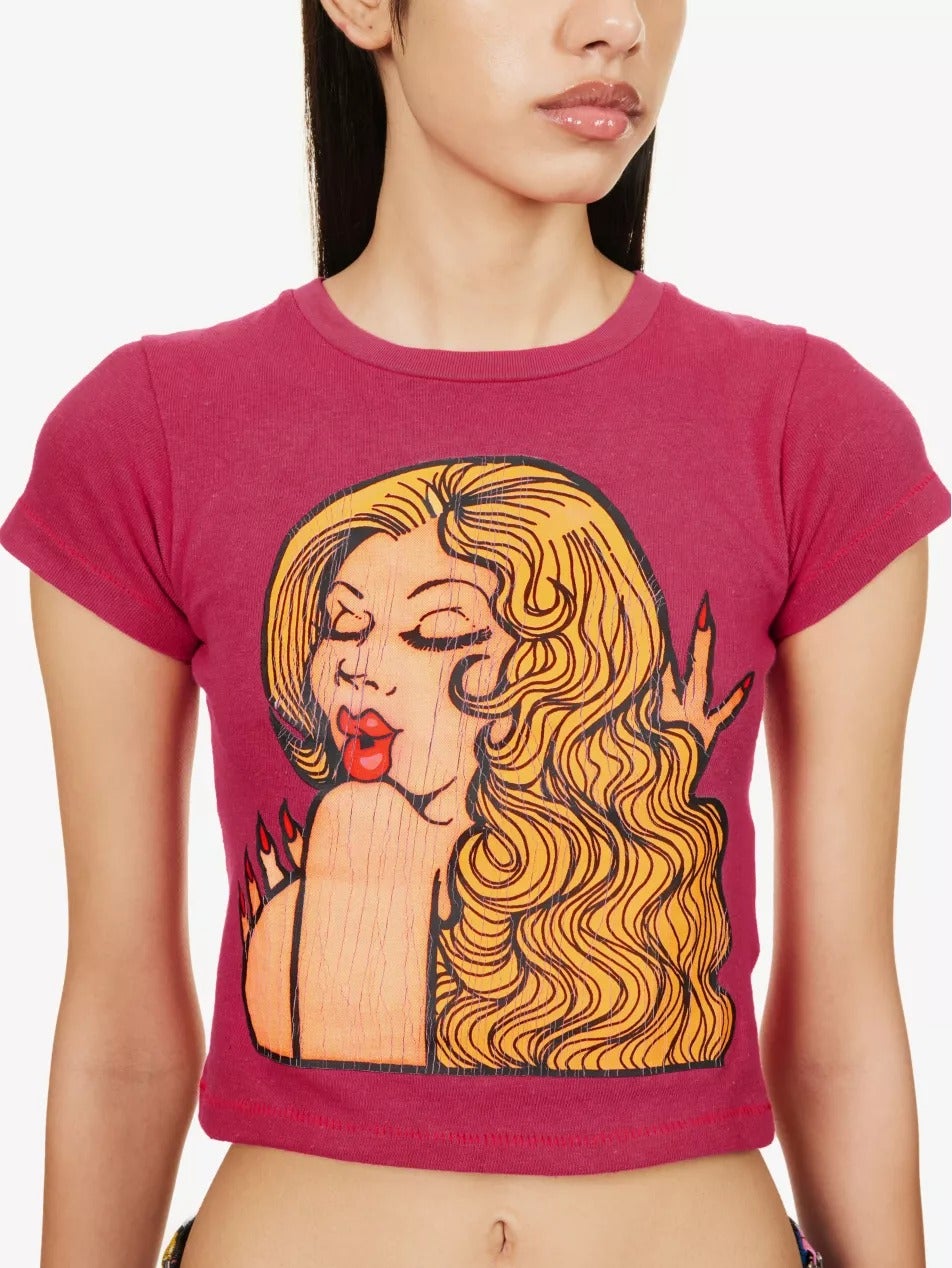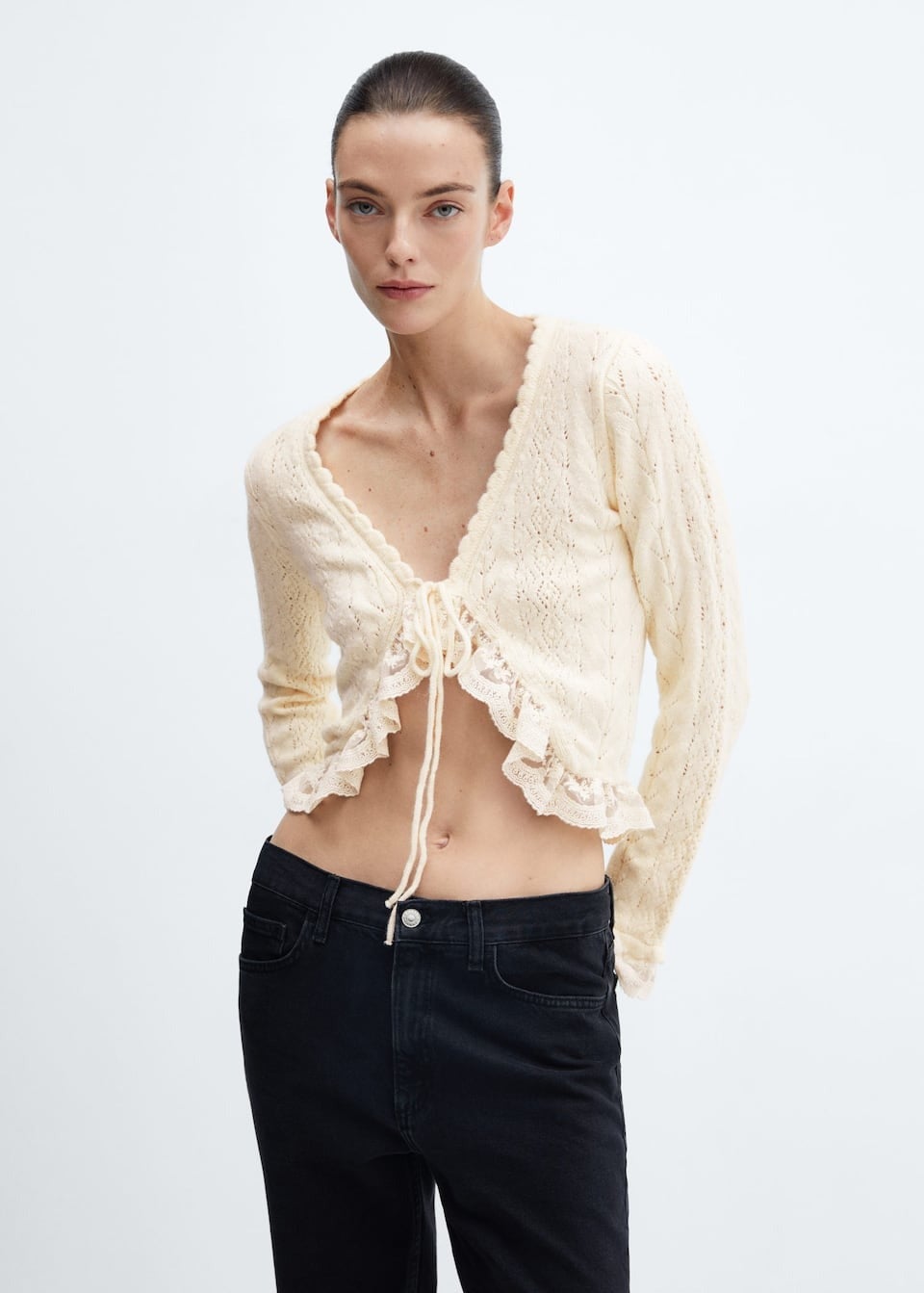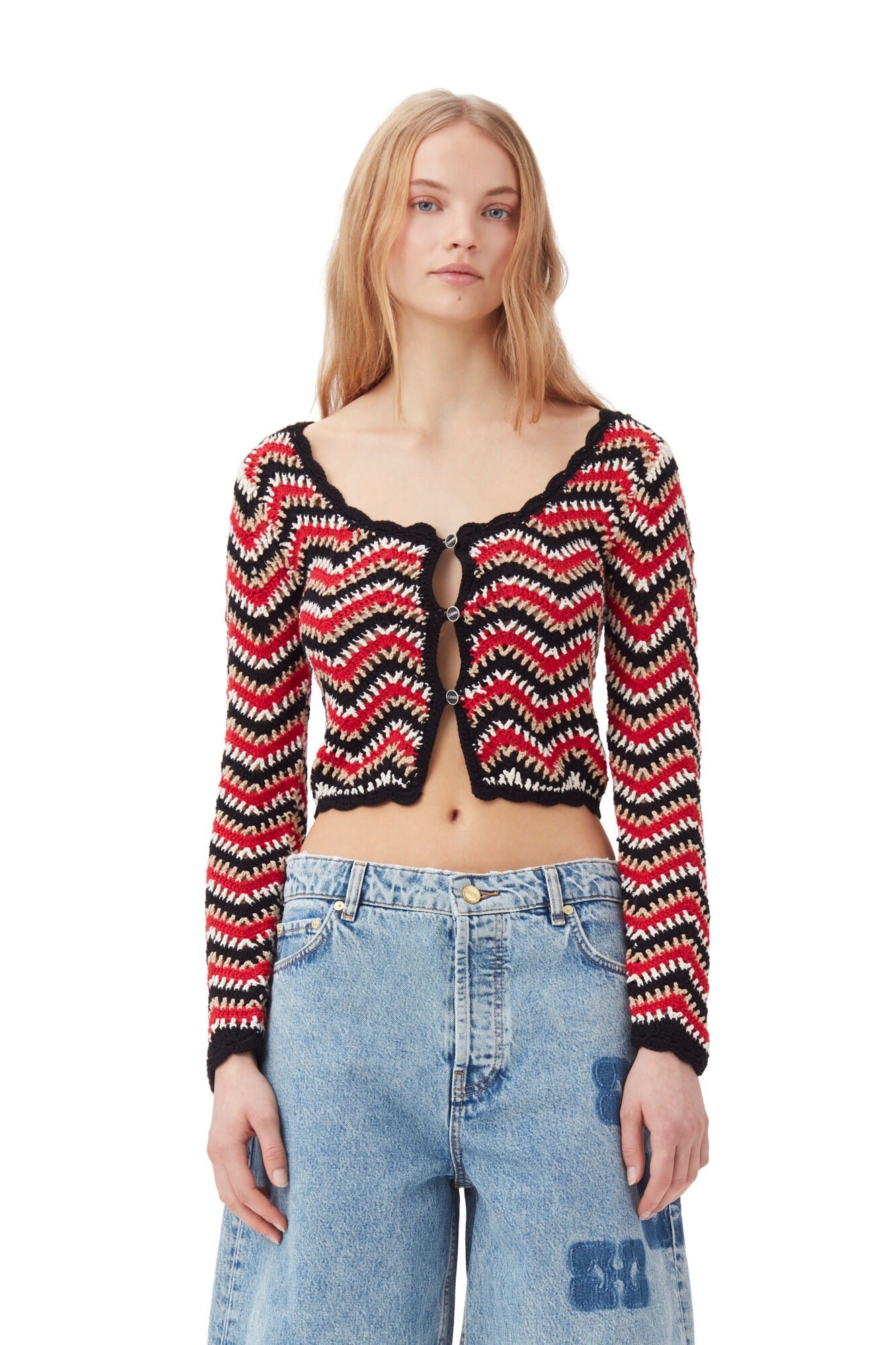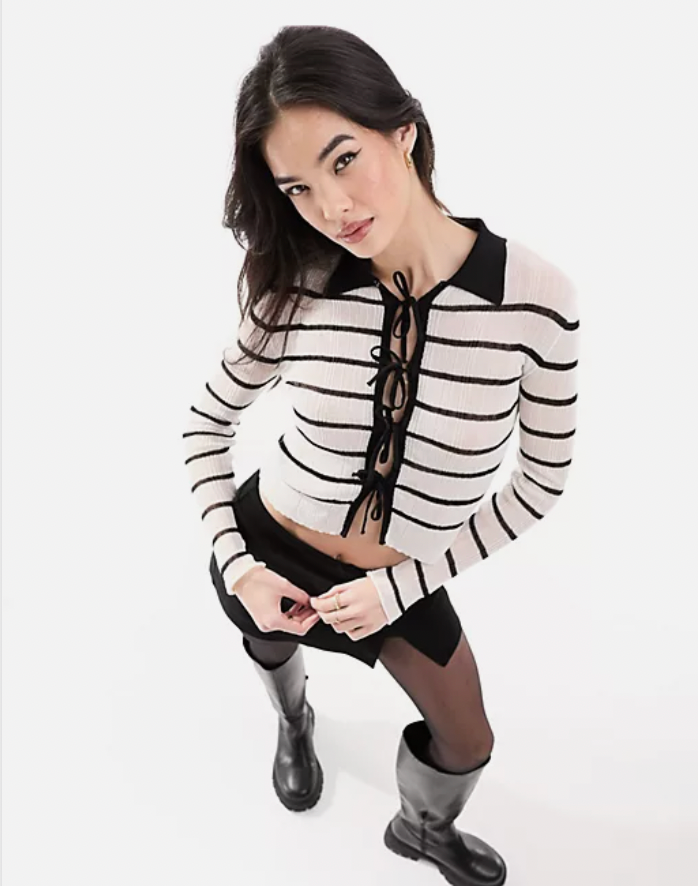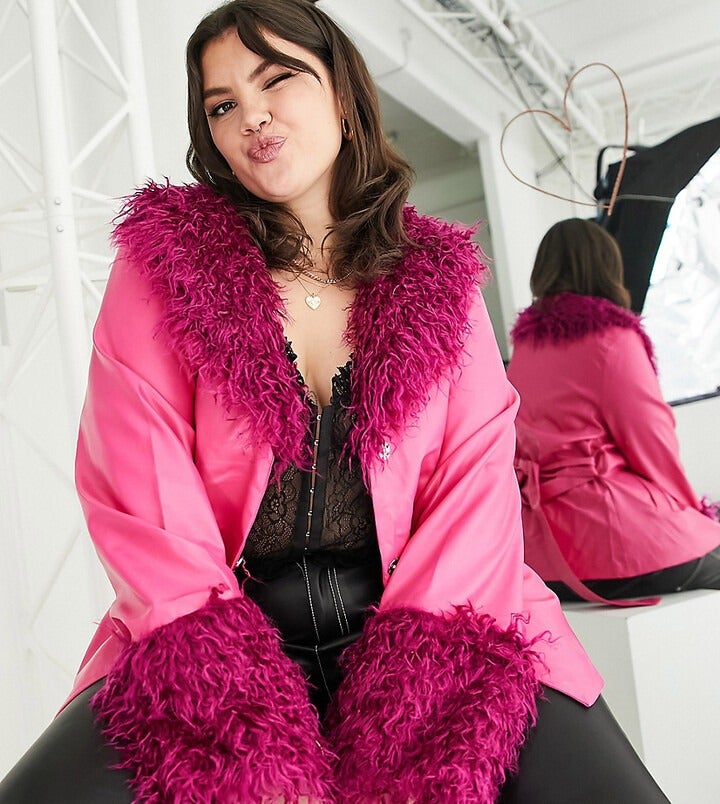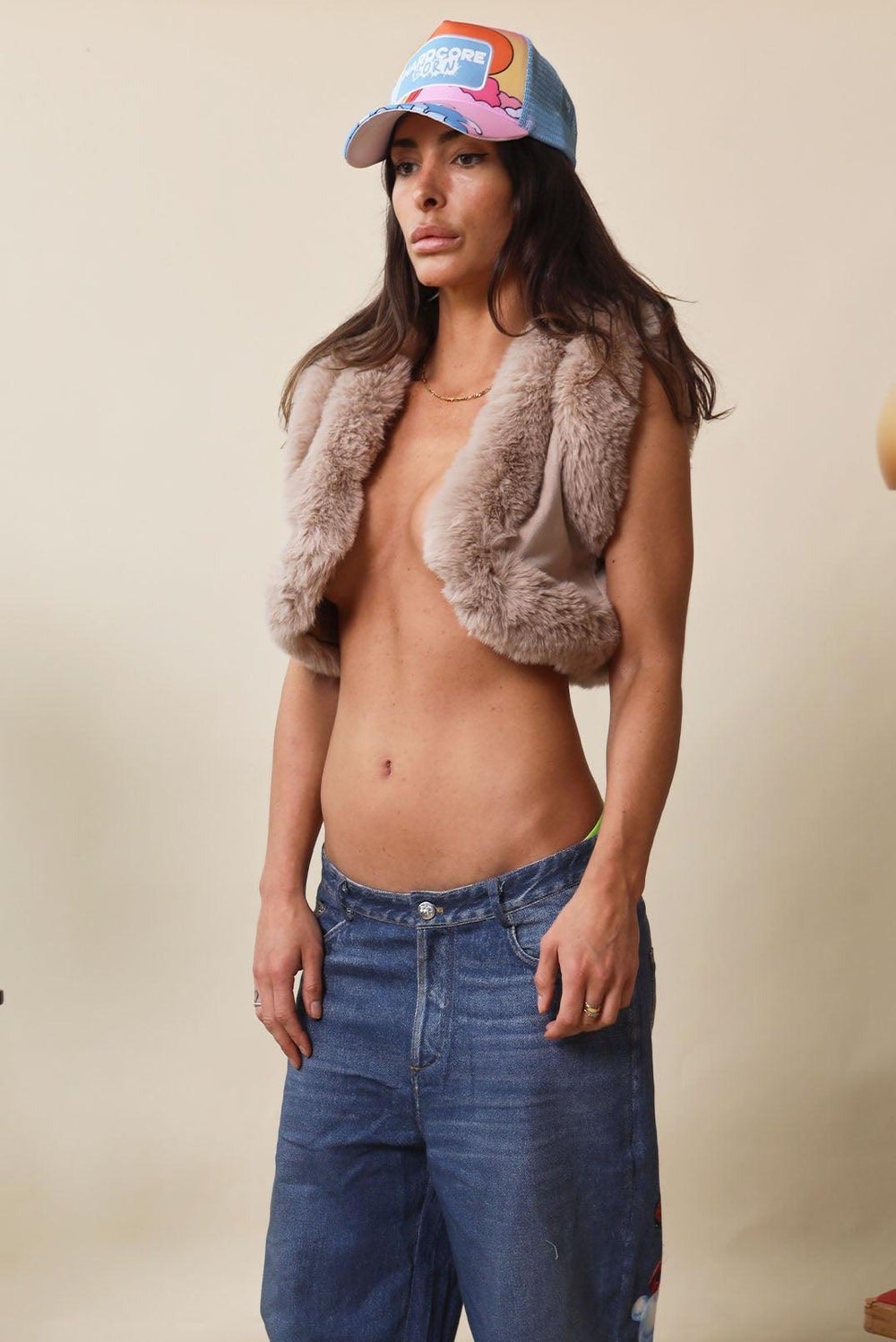All linked products are independently selected by our editors. If you purchase any of these products, we may earn a commission.
I was buzzing when the package finally arrived. A few days earlier, I’d ordered a pink off-the-shoulder jumper that looked exactly like one I loved as a kid. Its Depop seller had described it as “vintage” and “cottagecore”, but all I could see was a piece of my past that I desperately wanted back.
The moment I pulled the fuzzy fabric out of its bag, I was transported through time. I was no longer a 28-year-old in my London flat; I was 11 again, in suburban Canada, and it was school picture day. When I pulled the jumper on and looked in the mirror, I could practically smell my coconut-oiled hair that had once fallen past my exposed shoulders. I remembered my peach-fuzz moustache, my big, curious eyes, and the FM radio that played from my alarm clock as I got dressed — no notifications or news feeds or adult responsibilities to think of.
AdvertisementADVERTISEMENT
This is nostalgia at its finest, but not the kind you’d get from TikTok’s archives of vintage-inspired trends. This was something I’d never experienced with a piece of clothing before. When I pulled on that replica of my childhood sweater, I was reunited with that little girl from all those years ago and saw clearly that she’s still very much alive today. For the first time in my life I allowed my clothes to tell me who I am, rather than the other way around.
I first started gravitating towards fashion that reminded me of my childhood about a year ago — my brother had just died and it was a dark period of my life. Scrolling just to feel something, I bought myself a cropped purple tank top with a butterfly graphic, which would have otherwise been too girly or kitsch for me at the time. What I can see now is that this style of top (aka a sartorial symbol of early ’00s girlhood) strongly resembled many of the tops I loved as a child, and that gave me a distant but familiar sense of warmth.
Fashion has always been cyclical, so nostalgia is practically built into the way we dress. Throwback aesthetics like the ’80s mafia wife, or any one of the zillion y2k trends of late, continue to pay tribute to the good old days — even if we weren’t actually alive in those days. Fashion psychologist Shakaila Forbes-Bell, whose work centres around the belief that what we wear plays an integral part in who we are, says that dressing for nostalgia can be both reflective and healing.
AdvertisementADVERTISEMENT
“There’s a concept in fashion psychology called ‘wardrobe ethnography’, which basically says that your wardrobe is a reflection of all of the decisions that you have made up until this point,” Forbes-Bell tells Refinery29. “These decisions say something about who you were at a certain point in time — the things you were influenced by, what you saw in yourself, the lifestyle you were leading… I think it can be quite cathartic to wear things that remind you of your childhood.”
Regardless of what our childhood experiences were actually like, thinking about the clothes we wore — which likely featured playful graphics, bright colours, and a general unseriousness — can more often than not bring up parts of our youth that we actually want to remember. My childhood was far from perfect, but the unbridled joy I feel while wearing a cardigan similar to the one I wore to my fifth birthday party reminds me that I can reclaim the special freedom that we all tend to lose somewhere along the way.
This falls into the popular therapy technique called “inner child work”, which can be used to revisit, and attempt to process, difficult experiences from our early years (including everything from complex trauma to harsh words that just stuck). For me, during a period of such profound grief and trauma, wearing clothes from my childhood allowed me to escape to a place that felt much safer than the present day. This is not to say you can heal past trauma by simply dressing like a child, but it can be a helpful addition to the work you are doing.
AdvertisementADVERTISEMENT
One of my favourite film scenes growing up was in 13 Going on 30, when Jenna (Jennifer Garner) gets ready for her first night out as a 30-year-old. Set to Whitney Houston’s I Wanna Dance With Somebody, Jenna runs her hands through her dream wardrobe with childlike awe.
Instead of dressing as the “mature adult” she had become, she opts for her most colourful dress, stacks of resin jewellery and mismatched hair clips, and walks out the door with her arms swinging like the 13-year-old girl she really is.
This is exactly how it feels to bring back the playfulness of my childhood style. Recently when I bought a secondhand cardigan with a faux-fur collar — to replicate the statement collars I used to love as a child — it felt like I’d unlocked a higher level to my personal style. I styled it with a sheer top, black mini skirt and tights for a dinner out with friends, and silently high fived that younger version of me who was told I “had” to grow up.
Forbes-Bell shares that our clothing can speak volumes, and it’s never too late to reconsider what we’re saying with ours. “Getting dressed every day is not just a rudimentary act. It’s a decision, and every decision has a reaction,” Forbes-Bell says. “Having an understanding of the language of clothes — what they mean and how they make you feel — can empower you to make sure that the message that your clothes are projecting about you is accurate, and it’s true to who you are.”
For me, I want my clothes to tell the world that I’m not afraid to show the world my true self, and all of the beautiful, dark facets of it. Whether I’m wearing a tailored suit because it makes me feel strong and bold, or a pink jumper that was actually chosen by the 11-year-old inside of me, I can be confident that I’m doing it all for me.
AdvertisementADVERTISEMENT







